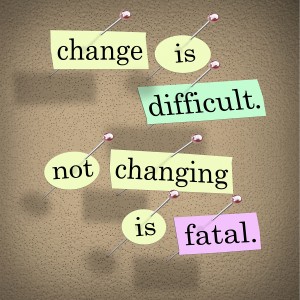While it’s easy to find news about the top leaders of most countries, those who are at the top of businesses rarely make news unless it’s about a company breakthrough or the opposite, a company scandal. Yet there are thousands of CEOs around the world, who collectively lead millions of employees. What are these leaders thinking?
The PwC consultancy (@PwC_LLC) has, for 16 years, been surveying CEOs and issuing annual reports. What is PwC? Per their website: “We’re a network of firms in 158 countries with more than 180,000 people who are committed to delivering quality in assurance, tax and advisory services.” What is its Annual Global CEO Survey? Again, per their website:
In total, we conducted 1,330 interviews with CEOs in 68 countries between 5 September and 4 December 2012. By region, 449 interviews were conducted in Asia Pacific, 312 in Western Europe, 227 in North America, 165 in Latin America, 95 in Central and Eastern Europe, 50 in Africa and 32 in the Middle East. The interviews were spread across a range of industries, with further details by region and industry, available on request. To better appreciate CEOs’ perspectives for 2013, we also conducted in-depth interviews with 33 CEOs from five continents over the fourth quarter of 2012, and more extensive extracts can be found in this website where you can explore responses by sector and location.
PwC’s full report is, as you might guess, extensive. It’s “key findings” can be scanned quickly, though [link]. Here’s my own quick take from reviewing the PwC findings.
Most of the CEOs do not see much chance of robust economic growth in the coming year. The list of global concerns is a long one. Problems abound. Solutions, not so much.
Most are worried about unexpected bad things happening (“catastrophic events, economic and policy threats, and commercial threats”). Says PwC: “We asked CEOs about their organisation’s ability to cope with a range of disruptive scenarios. Most felt their organisation would be negatively impacted, with major social unrest being cause for the greatest concern.”
Most know that internal changes are needed, that the status quo operational policies and practices of their firms won’t be sufficient in the future. Says PwC: “That’s why nearly half of CEOs say improving operational effectiveness is one of their top-three investment priorities this year.”
Yet, many (between 20-30 per cent) embrace optimism that their companies can grow, and the top two ways these CEOs said they could do that is via (1) “new product or service development” and (2) “organic growth in existing domestic market[s]”.
The CEOs know that customers are key to their future. Saws PwC: “So it’s no wonder that 82% of CEOs are looking for new ways to stimulate customer demand and loyalty this year.”
Lastly, many CEOs are worried about trust, which PwC profiles in impressive detail: “… CEOs know they have to repair the bridges between business and society. The global financial crisis and questionable behaviour of some companies have badly damaged faith in institutions of every kind. And this is impacting on their brand value and performance. Indeed, 37% of CEOs are concerned that lack of trust in their industry could endanger their company’s growth.”
 It’s not easy to lead a country these days, if it ever was. And, in many ways, PwC’s findings demonstrate that it’s also a challenge to lead a business of any substantial scale. That’s why you can actually find lists of CEOs whom some say will (or should) be fired. On the list published 26 ecember 2012 by 24/7 Wall St., the first CEO on its list is Ron Johnson, who was just dismissed by the department store chain, J.C. Penney.
It’s not easy to lead a country these days, if it ever was. And, in many ways, PwC’s findings demonstrate that it’s also a challenge to lead a business of any substantial scale. That’s why you can actually find lists of CEOs whom some say will (or should) be fired. On the list published 26 ecember 2012 by 24/7 Wall St., the first CEO on its list is Ron Johnson, who was just dismissed by the department store chain, J.C. Penney.
The pressure being felt by CEOs in general, and especially those facing high degrees of disruptive ambiguity, is relentless and even escalating in 2013. The business philosopher Joseph Schumpeter spoke of “gales of creative destruction”, which implies that — sooner or later — all leaders (and leading companies) will stumble and fall.
Is any CEO safe?
And what of the companies they lead?
And their many employees?
My sense is that different CEOs with distinct legacy challenges will face quite different challenges. However, all CEOs must face the uncertainty of disruptive change and have less time than they would like to sort things out. The first problem to address is how to think about what needs to happen next in order to steer safely into the future. For CEOs, this is not an option. As so many environmental websites declare, “Extinction is forever.”
